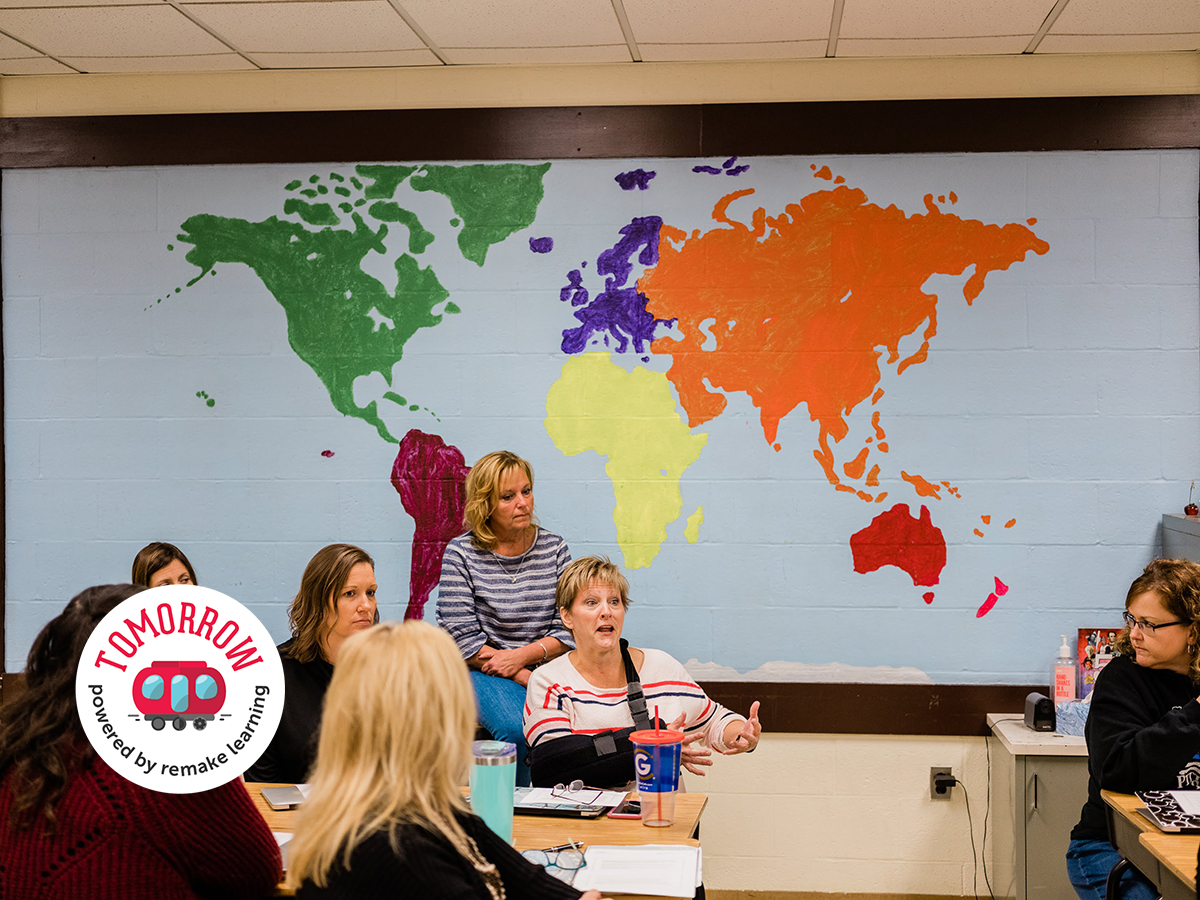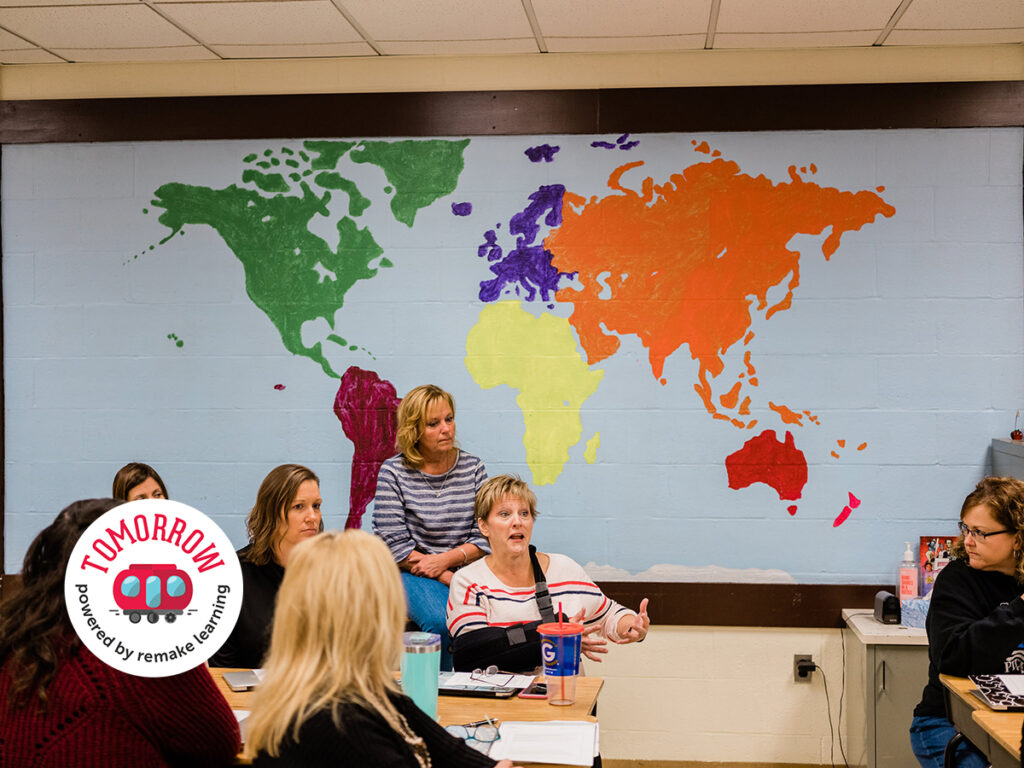In the early spring of 2007, a group of community members gathered in Pittsburgh to brainstorm about learning. It would be nearly a decade before the ideas they shared that day—grounded in community-wide collaboration to extend learning far beyond the walls of K-12 school buildings—would emerge as a global topic of conversation.
Even after nearly 15 years, some communities around the world are just beginning to explore the creation of their own “learning ecosystems.”
But in places like Pittsburgh, those seeds were planted long ago—for something originally called Kids+Creativity and its plans to “engage children in a variety of social and educational settings, from schools and learning institutions to public play spaces to community-based resources and cultural assets.”
The purpose of this fledgling ecosystem? That “all youth might learn, create, and dream big ideas amidst our ever-changing world.”
That initiative eventually gave rise to the now-robust educational network called Remake Learning, and grew to include thousands of educators and partners across more than 600 school districts, universities, museums, libraries, out-of-school-time providers, early learning centers, and creative businesses.

Meeting Unexpected Needs—And Enduring Ones
In those early years, members of Pittsburgh’s learning ecosystem knew they were building connections that could help 21st-century learners thrive. But few would have imagined these relationships would one day help them navigate a pandemic.
According to the Local Learning Ecosystems: Emerging Models report issued by WISE in 2019, when students “engage with a range of resources within a broader community, charged with the power of social interaction in the connected world, learners of all ages, temperaments, and aptitudes can seize greater opportunities that better meet their needs.”
In the spring of 2020, the needs and obstacles for learners suddenly multiplied.
New challenges erupted and existing inequalities were magnified. Children needed their communities to step up and help. Schools simply couldn’t do it alone.
Fortunately, in places with strong learning ecosystems, relationships helped make creative solutions possible. It wasn’t easy. But nonprofits in Pittsburgh were able to quickly partner with local businesses to gather laptops. Other community members helped create wifi hotspots where students could access schoolwork and eventually created networks to bring consistent internet to underserved neighborhoods. Perhaps most vitally, hungry families were fed because nonprofits partnered with schools to get food to bus stops and other locations families could reach.
The beginnings of a learning ecosystem also helped the U.K. city of Doncaster keep families and schools connected during the pandemic.
Teachers and parents from one Doncaster primary school sought to build on their communication with each other by participating in the Parents As Allies research project. Along with other communities around the world, they spent a portion of this year using human-centered design to plan new ways to forge deeper bonds outside of the classroom.
Doncaster educators are now collaborating with Michael Stevenson, a senior advisor at the global Organization for Economic Development and Cooperation (OECD) and a Doncaster native, on further development of their ecosystem. Their goal is to leverage the strengths of the local community—not just educators, but also employers and community leaders—to better support not just academic learning and technical skill-building but also social-emotional development for young people.
Stevenson told an audience at an event last summer that Doncaster has similarities in common with Pittsburgh and also Finland, home to the learning innovation nonprofit HundrED.
In his words, Remake Learning serves as “a group of interconnected and highly innovative people and organizations across the region, who are trying to make learning more engaging and relevant and fair for young people bearing in mind that those young people are navigating rather remarkable levels of social and technological change.”
Doncaster, he said, could be home to something quite similar.
Supporting Students and Teachers
Perhaps most dramatically, existing relationships also helped form Pittsburgh’s Learning Hubs.
When COVID shuttered schools in Pittsburgh, a wide range of out-of-school-time providers, childcare centers and other community organizations stepped up.
“People just activated really quickly,” says Amy Malen, assistant deputy director at Allegheny County’s Department of Human Services in Pittsburgh.
“It was really sort of a ‘whatever it takes, all hands on deck’ creative problem solving” situation, Malen says of the collaboration between schools, nonprofits and local officials. “The power of people coming together is pretty incredible.”
At the Learning Hubs, out-of-school-time educators were vital partners for classroom teachers, not supplanting them but supporting them. And as communities look beyond the pandemic, these relationships can point the way toward even more opportunities for learners.
The more diverse our pool of educators and places for learning, the more equity we can create in all learning environments.
Far from diminishing the role of teachers, learning ecosystems allow teachers “to be learning designers in the very best sense of that term,” says Valerie Hannon Global Education Leadership Partners and Innovation Unit co-founder, who co-authored the 2019 report cited above and spoke with Remake Learning’s Tomorrow campaign about learning ecosystems early in the pandemic.
What the Future Could Bring
Next year, the Remake Learning network will celebrate its 15th anniversary. And even as its members focus on innovating regionally, the network is partnering with others around the U.S. and the world. These include creative players like Maker Ed, Community Share and the Afterschool School Alliance, as well as global partners like the WISE Learning Ecosystems Living Lab, all of whom are working to advance ecosystemic approaches to learning.
This work could be further fueled by a national initiative on community learning ecosystems, as Remake Learning co-chair Gregg Behr describes in this Day One proposal.
In the meantime, the network has expanded through the Remake Learning Days Across America festival to include more than a dozen additional regions around the U.S., each activating their own local ecosystems. In each of these communities, the goal is to uplift local wisdom and pursue equitable learning for all.
And Remake Learning was just announced as a founding partner along with Innovation Unit, Big Change, Learning Creates Australia, and People for Education, for an “experiment in global field building” which will be unveiled at the RewirEd Summit in December.
Educators around the world are embracing the possibilities of learning ecosystems, a subject that will likely figure prominently in the upcoming WISE Summit in December and the #LearningPlanet Festival in January.
In Pittsburgh, this global embrace of learning ecosystems makes perfect sense, but only if—and especially when—we embrace the brilliance of all learners.
We know that more relevant and engaging futures where learners know that they belong aren’t guaranteed. And so, we are each called to forge a future where each day holds promise for every learner—where we help youth, families, and educators connect timeless ideas and new ways of learning to prepare for whatever may come next.
That relevant and engaging tomorrow is something we must work toward together. Educators of all kinds—and all those around them who form community-wide, nationwide and even worldwide ecosystems—must collaborate to build futures that hold promise for every learner.
That’s when success can be all but assured—no matter what comes next, no matter what tomorrow might bring.
